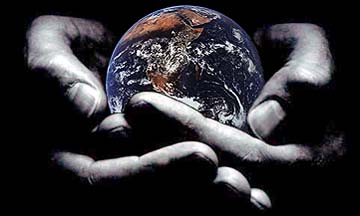 One of the ideas of the website, was that the essential work of being critical of formulations and properties could be partly taken up by others—by at least a few, perhaps tens, even hundreds of others. However, I now realize that the Internet doesn’t work that way. Creativity, we are told again and again, depends on not criticizing ideas. Common politeness respects personal autonomy and demands restraint—there is something in that.
One of the ideas of the website, was that the essential work of being critical of formulations and properties could be partly taken up by others—by at least a few, perhaps tens, even hundreds of others. However, I now realize that the Internet doesn’t work that way. Creativity, we are told again and again, depends on not criticizing ideas. Common politeness respects personal autonomy and demands restraint—there is something in that.
But, oh dear, does that mean the evolution of ideas based on competitive battles, necessarily red in tooth and claw, must give way to consensus on the lowest common denominator of expedience, fashion or what feels good? Not really. It just means that I have to be my own biggest enemy. So I am playing the role of hitman today on a duality in the Personal Endeavour Tree framework.

Do you remember it: Autonomous (A) v Constrained (C)—the dynamic duality.
The idea is that the moment you actually start doing anything in your endeavour, the hierarchy re-configures due to a tension that enters. How free are you to set your purposes, and how constrained? How free are you to inquire, and how constrained? Thinking that issue through for every form of Will is essential. You can see the pattern that results in this image.
However, I have been uncomfortable about "autonomy". (Notice I spontaneously used 'free' in the previous para, as if autonomous was, if not wrong, then clumsy.) The etymology is Greek: autonomia comes from auto = self, and nomos = law. So it means living under one's own law. This is not quite the same as freedom to do things. So I ask myself if it is, perhaps, not specific enough. As if to prove that point, autonomy turned up again almost immediately in the Creativity Framework as the conduits of autonomy when using willpower. I'm always nervous about words turning up in many places, particularly at the same time. That is usually a signal that I have some sort of mental fixation.
Perhaps autonomy in creativity is not quite the same as autonomy in endeavour because the former reference is to a general power or right to move freely through psychosocial reality. That creativity idea is closer perhaps to a freedom from unnecessary inhibitions—which links to the root of the word in custom or law. Remember that the original autonomy-constraint duality is also present (by definition) in all 7 of those conduits. That is confusing for me.
In ruminating about this, a story from King Arthur came into my mind: King Arthur is about to be killed by a powerful knight who agrees to spare him if, within a year to the day, he can answer one question: What does a woman most desire? Arthur searches the realm for the answer and eventually finds an appallingly ugly hag, Dame Ragnell, who knows the answer. However, the price for revealing this answer is marriage to the young, magnificent Sir Gawain.
Gawain agrees to wed the hag out of his love for Arthur. The answer is then revealed: sovereignty over a man. Gawain follows through on his promise. But in the bedroom on the wedding night, to his great surprise, he discovers the hag is a stunningly beautiful woman. It turns out the young woman was put under a spell, so that she is an ugly hag for half of every day. She asks Gawain whether he prefers her to be beautiful by day and protect his prestige or by night for his enjoyment. He gallantly leaves it up to her. Great move! That releases her curse because, she explains, he gave her sovereignty over herself. She is immediately restored to her beautiful self permanently.
Aaahh ... great story! They don't make 'em like that anymore.
But back to my focus: I wonder if sovereign might not be the better term for the Endeavour Tree. It indicates an independence of outside authority which fits.
Sovereignty would seem to refer to a rather specific freedom that comes with the power to do or to make choices in a wholly unconstrained way. That puts it squarely in the sights of what we desire in any endeavour. Despite the dictionary focus on nation-states, the Bible is clear that God is sovereign because of his absolute right to do all things according to his own good pleasure. Man is made in the image of God or, if you prefer, God is a projection of man's imagination, so the same notion applies to us.
OK: if the duality has sovereign on one pole, then constrained now seems insufficiently strong or grand to be the opposite. I put dependent in the Table (cf. independence above), but that seems a poor term. What about something like bound, which is far more definitive and limiting? It also fits rather better than constrained in describing the intent of formal specifications (L5) or group doctrines (L5), and to be hoped for in regard to desired developments (L3).
So the new duality would be: sovereign v bound.
I've made my case that the duality should be adjusted. Not a big change, but I feel it may be more resonant and precise. (If I settle on it, then I have to make minor changes to quite a lot of images, and go through all the text. So it's a bit of an aggravation for me. I would prefer to avoid that!)
What do you think? Does it help? Do you have better suggestions? Your view is valuable.
WK
About
Warren Kinston